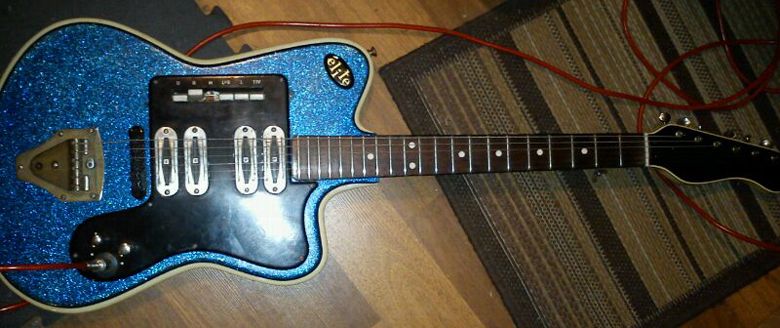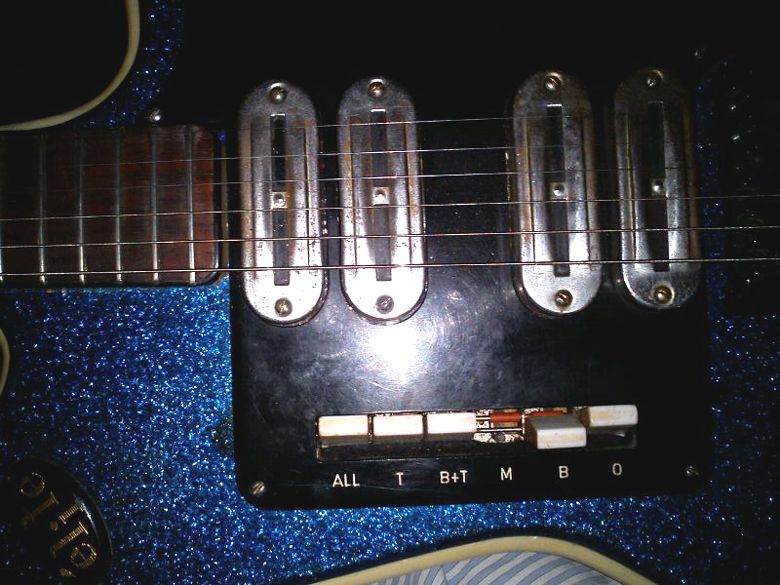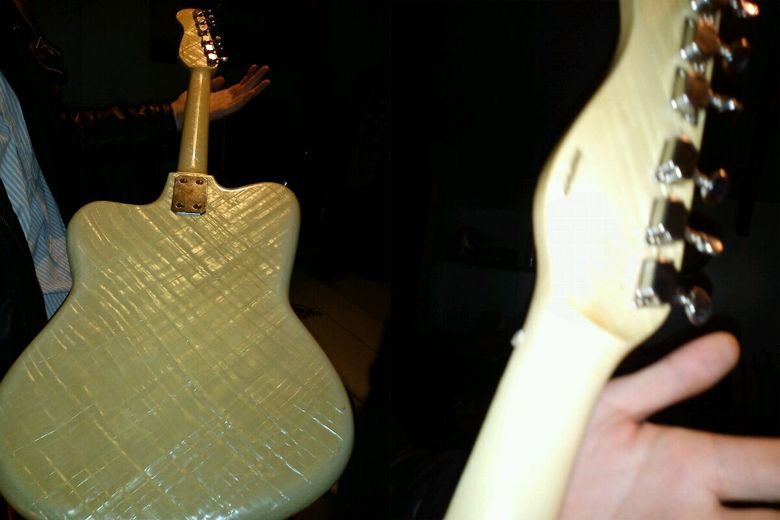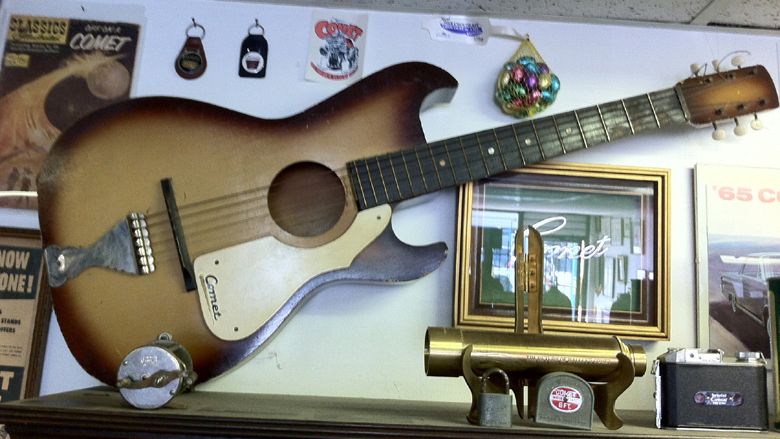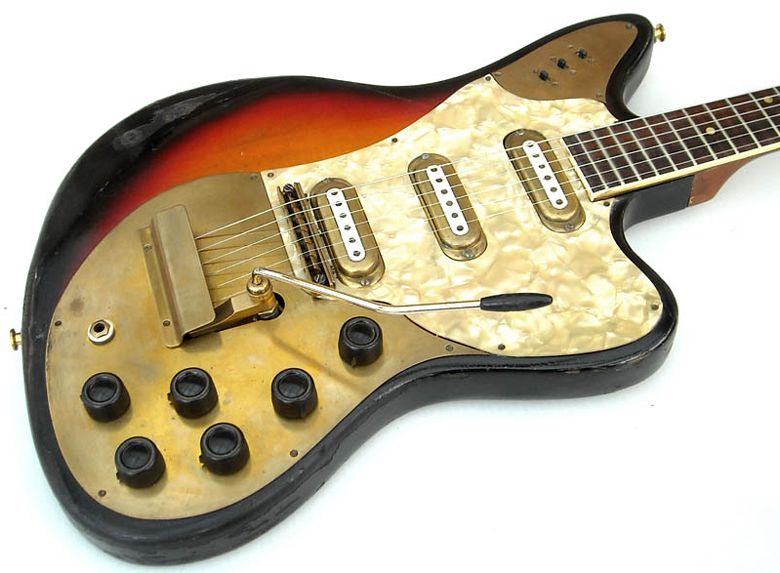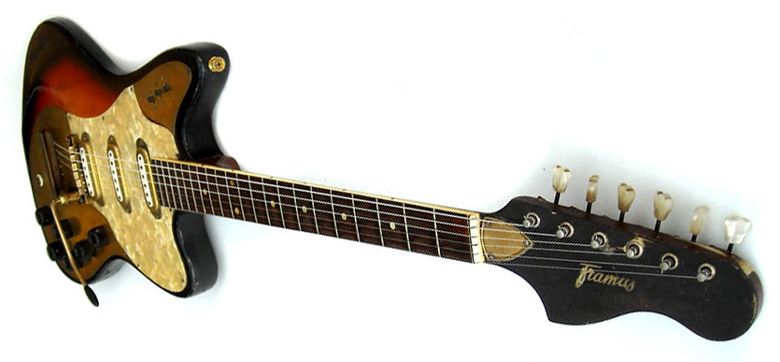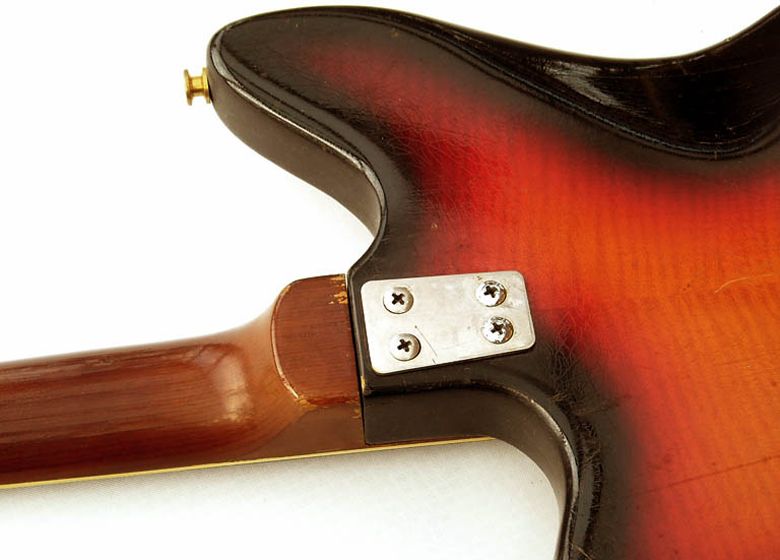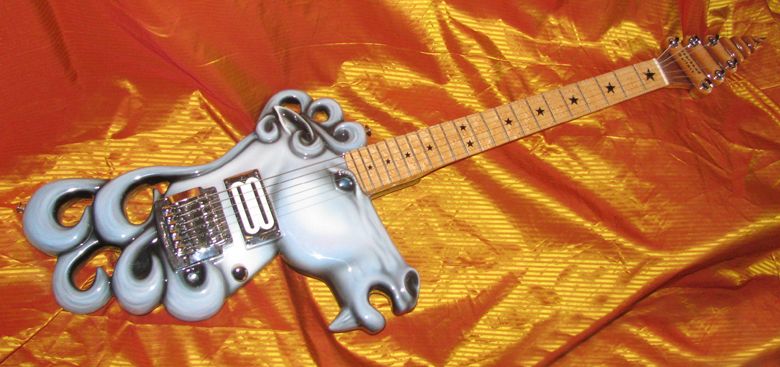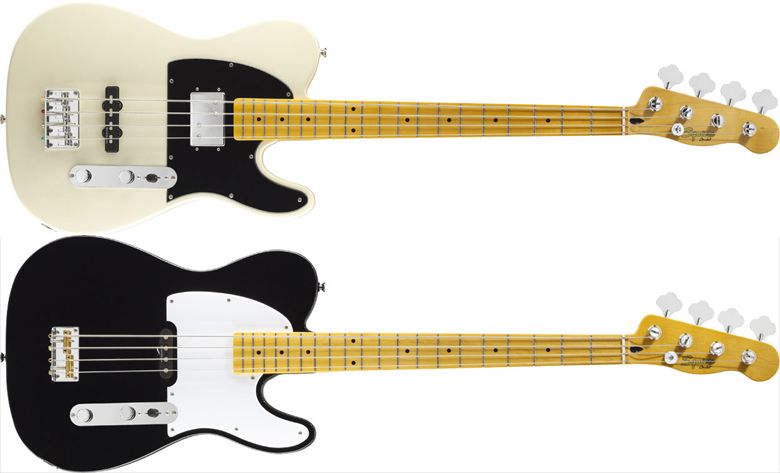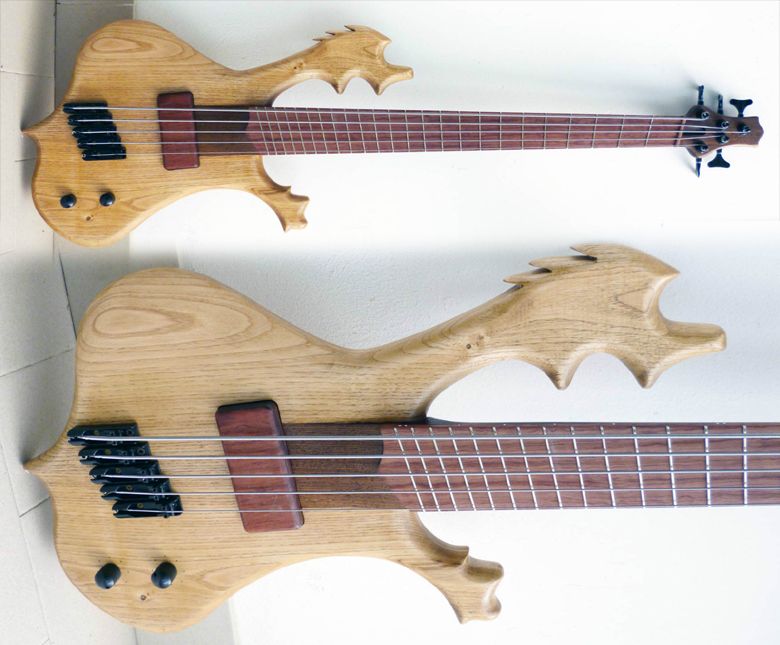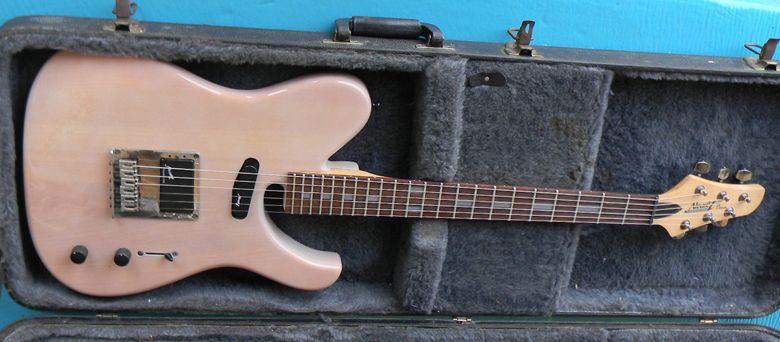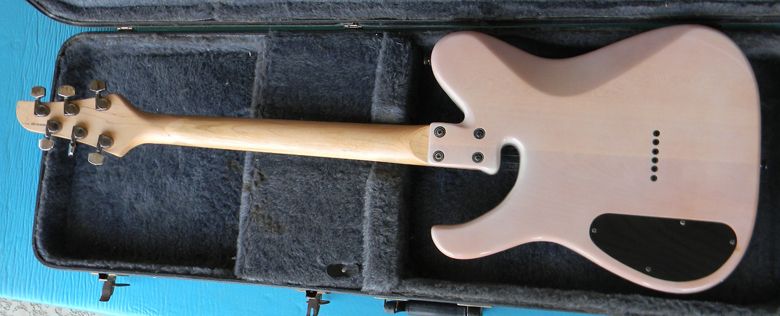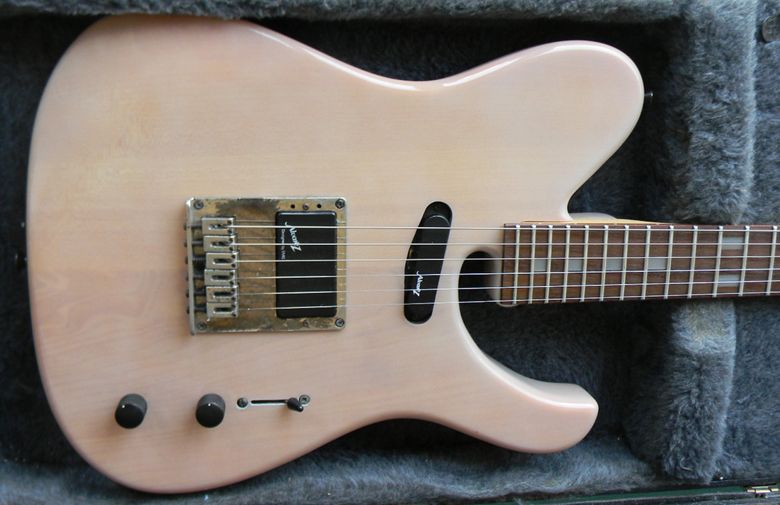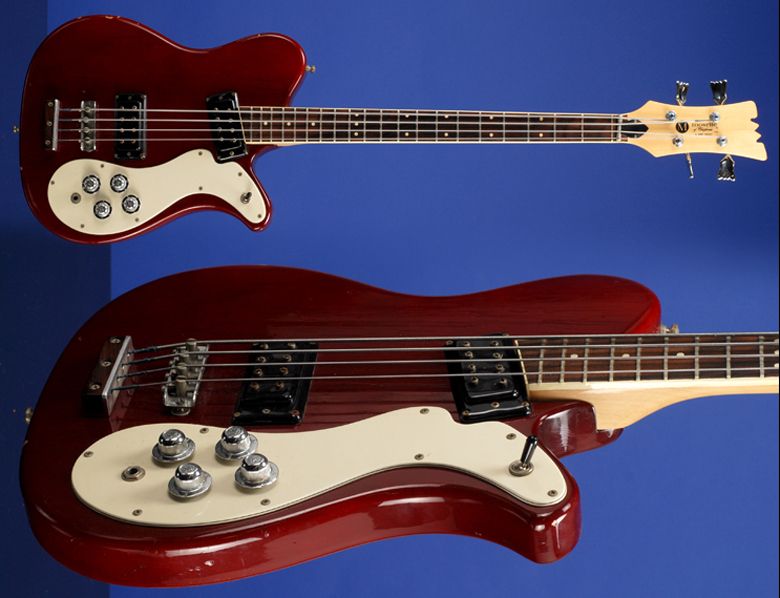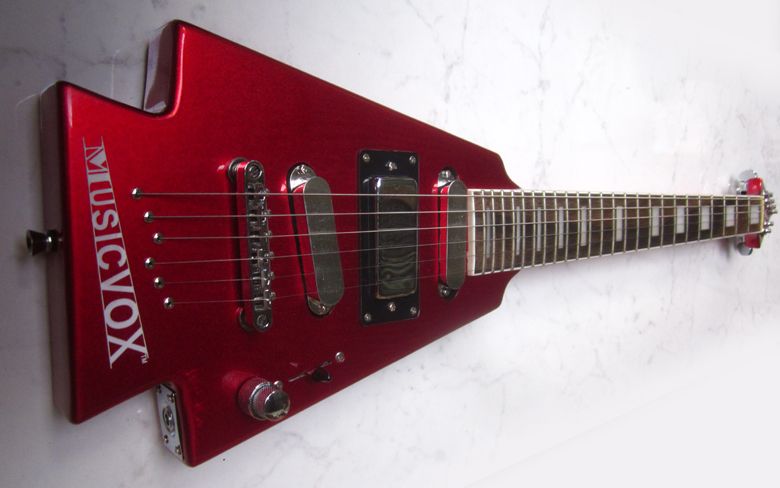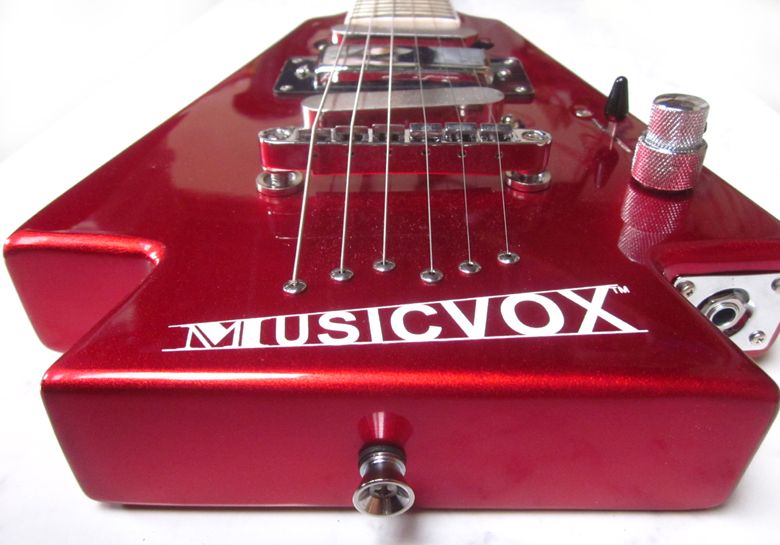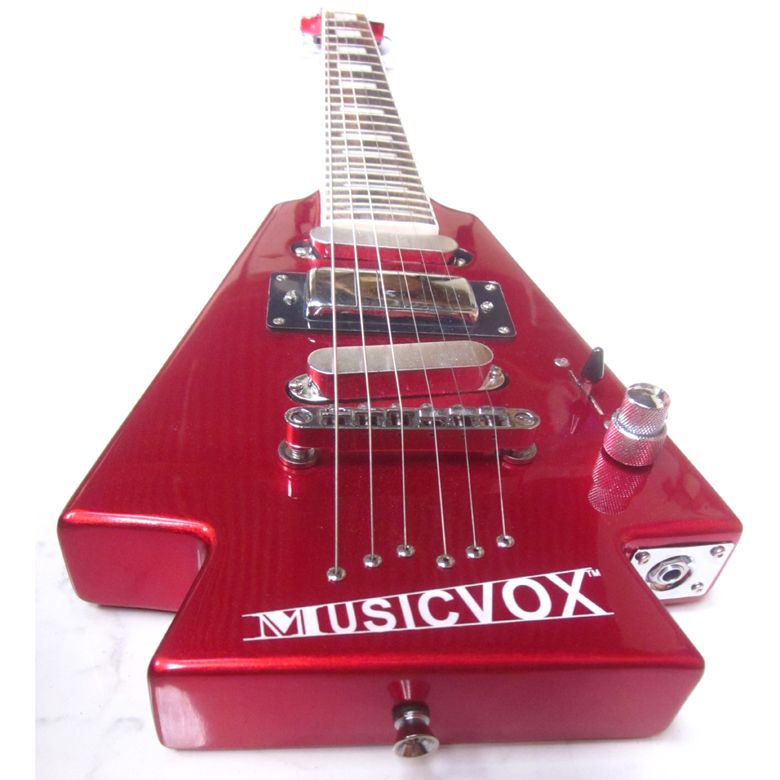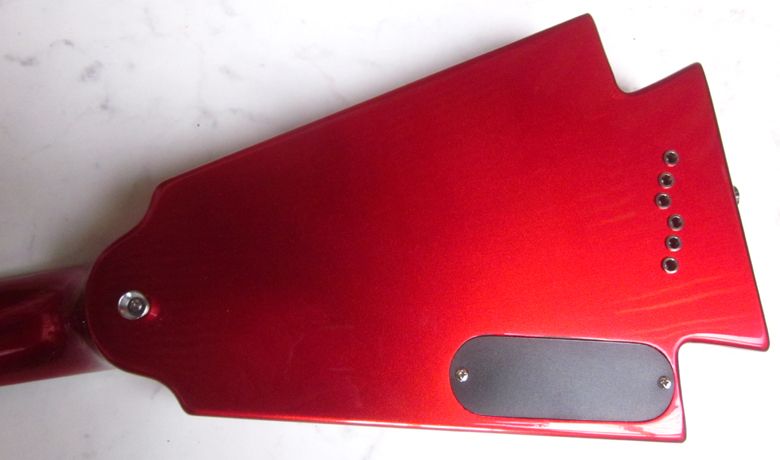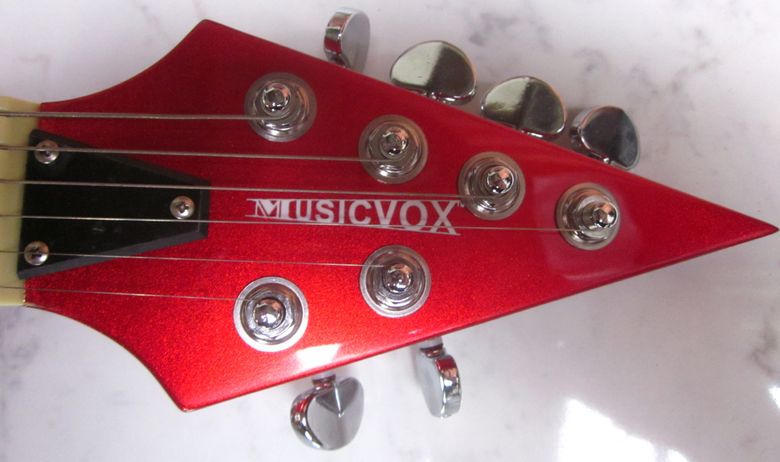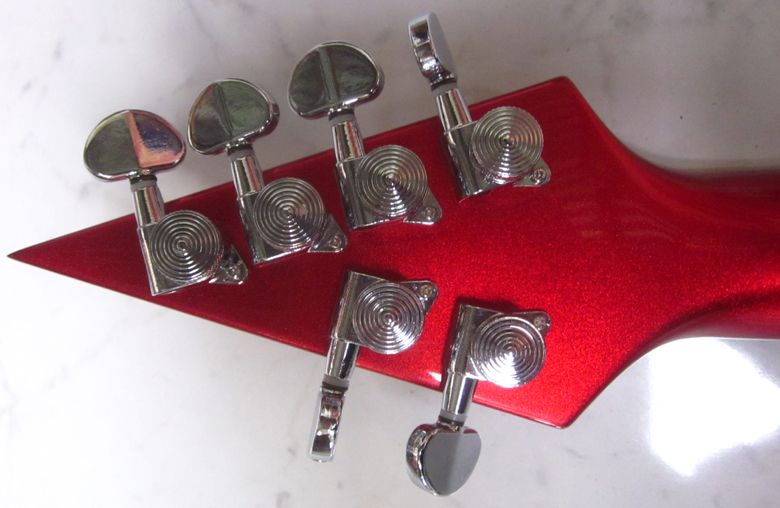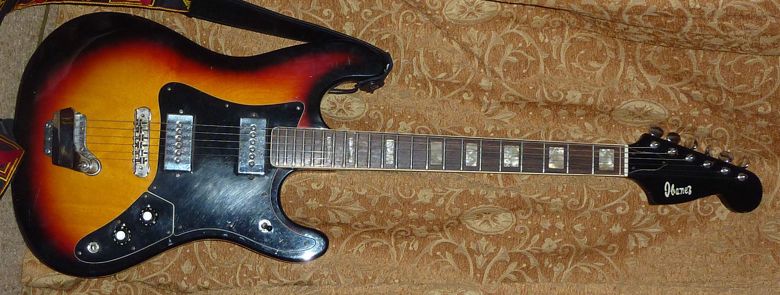guitarz.blogspot.com:
Here at
Guitarz we really admire people like Matt Eichen, a vintage guitar enthusiast who loves retro instruments so much that back in 1997 he decided to start his own line of retro-inspired guitars. He wasn't content to merely create another range of Fender or Gibson knock-offs, he wanted to create something quirkily different as a homage to the past but with modern playability and production quality.
And so Musicvox was born, and their first model - the Space Ranger - was quite a head turner - classic singlecut guitar and bass models but with an unfeasibly large lower horn and a very eccentrically-shaped headstock. These weren't guitars for just
anybody, certainly not for the hordes of conservative-minded guitarists who can only think in terms of Strat, Tele, Les Paul, SG. With a Musicvox guitar you needed to be in the Matt Eichen mindset; you either "got it" or you didn't.
Finding it difficult to find a distributor for these "wackily"-designed guitars,
Musicvox began selling their guitars directly to the public via the internet, and indeed were one of the first guitar brands to do so. Of course this is common practice nowadays.
Musicvox followed the Space Ranger with the Space Cadet - a similar design but with the eccentricities toned down - and models included the Space Cadet 12-string bass which was not only one of the more competitively priced 12-string basses on the market but also highlighted Musicvox's agenda to create instruments that challenged the norm.
In 2002 a pair of Musicvox Space Ranger guitars were featured in
Goldmember, the 3rd instalment of the Austin Powers movie series, which exposure should have proved beneficial to Musicvox sales, but soon after for personal family reasons Eichen was forced to wind down the company.
Fast forward best part of a decade, and Eichen - buoyed up by the fact that he noticed that there were still a lot of people out there talking about Musicvox guitars and a continued interest on the internet - decided to re-launch the brand.
Of course the models that got everyone talking in the first place - the Space Ranger and the Space Cadet - were back and were accompanied by some new designs - the MI5 guitar, bass and 12-string guitar, and the spear-like Space-inator guitar and bass (the prototype was named the Strataspear but a certain other company took umbrage and issued a court injunction against the use of the name).
Matt very kindly sent a Space-inator all the way to deepest darkest
Pembrokeshire in Wales, UK for
Guitarz to review. This particular example is finished in a
flawless candy apple red. Other colours I have seen pictured are gold flake, silver
flake, and taxi cab yellow - all are extremely eye-catching. Upon taking the guitar out of the box I was immediately struck by the sheer quality of the finish. With the
metallic candy apple red I could almost have believed that the Space-inator was made
completely of metal. I was also very impressed that it emerged from the box more or less in tune after its Atlantic Ocean crossing; just two strings were slightly flat and needed tweaking.
So, let's take a closer look at what we've got here. The Space-inator is a small-bodied guitar weighing in at just over 4 pounds. It has an angular, arrow-shaped body not unlike a more flared-Steinberger shape, and also perhaps vaguely reminiscent of the Burns Flyte, whilst a friend who I showed it to commented that it looked like a "sawn-off Flying V". The headstock is a compact very pointy spear-shaped affair with locking tuners arranged in a 4+2 formation a la Musicman and certain vintage Teisco guitars. This isn't merely a whim of aesthetics; if you look at the back of this very compact headstock you'll see that there would have been no room to facilitate having the G and D string tuners opposite one another in a 3+3 layout.
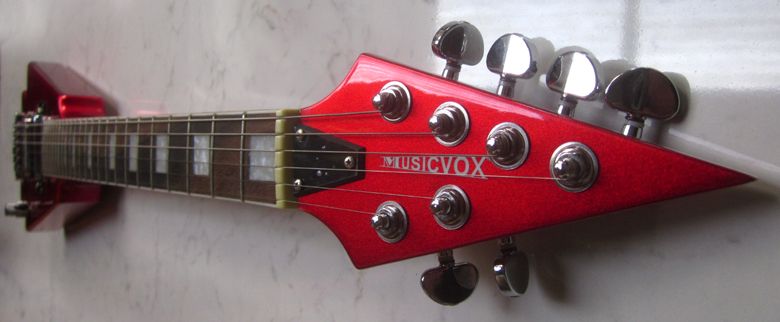
The neck of the Space-inator has a bound rosewood fingerboard and carries 24 jumbo frets and block pearloid position markers. Of course, because of the minimal body shape, there is no difficulty whatsoever in reaching the highest frets at the body end of the fingerboard. The scale length is 25.5", and the heel of the neck blends smoothly into the underside of the guitar body. The Space-inator is in fact of neck-through construction. That and the through-body stringing behind the Tune-o-matic style bridge ensure that the Space-inator gives plenty of sustain, something which may have so easily have been compromised on such a small bodied guitar.
It would have been so easy for Musicvox to unimaginatively equip this guitar with a pair of humbuckers or else three Strat-style single coil pickups, but instead they have chosen to do something much more interestingly versatile. What we have here are three pickups controlled via a 5-way switch, with two low-noise single coils in the neck and bridge positions and a mini-humbucker in the middle position. I have previously commented on this blog about the usefulness of such a rarely-seen layout after having played a friend's Aria "Dragon Strat" which had a stacked humbucker in the middle position. What it means is that you can get the classic single coil sounds in the neck and bridge positions, but you can beef up both of these in the inbetween positions, and of course get a full-throttle humbucker in the middle position. I find that it's a lot more useful say than a SSH pickup layout where you can only use the humbucker in conjunction with one of the other single coils (unless it has individual pickup switching). Note also that the bridge pickup on the Space-inator is angled in the opposite direction to that on a Strat. I found it wasn't as bright sounding as the bridge pickup on a (typical) Strat, but then this guitar is its own animal - if you want Strat tones that badly then use a Strat! I must confess that my favourite pickup selections were the middle three, i.e. all of those utilising the humbucker, but then that's just me.
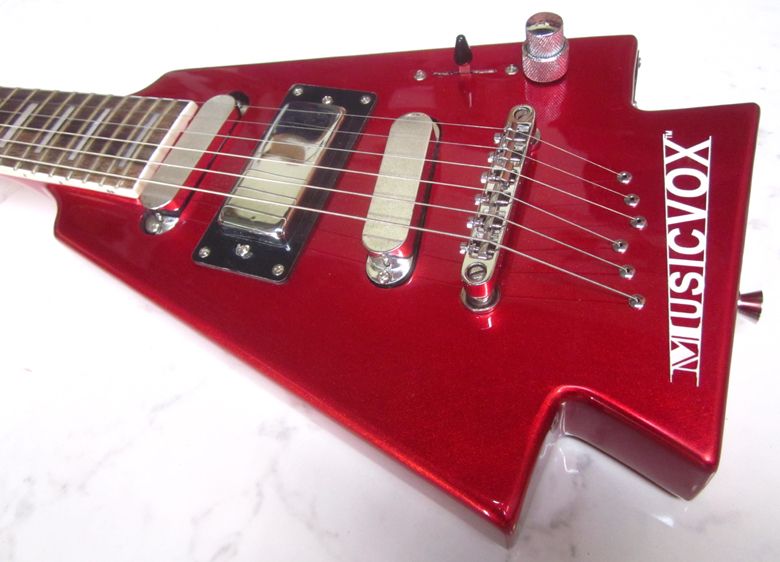
As for controls, we have the aforementioned 5-way pickup selector switch and a volume and tone on a single concentric stacked pot - very nice and simple to use, maybe too simple for some who like separate controls for each pickup; for myself I'd be happy to sacrifice the tone control altogether and just have a single volume.
In use, the Space-inator does take a little bit of getting used to at first, mainly
because of the way it hangs on a strap and because of that and its shape the 24-fret
neck does seem to be extremely long - it feels a little like suddenly having a bass neck to contend with. Playing some solos I'd previously been playing on my trusty Aria TA-30 semi I did find I was going to the wrong frets quite often. But of course none of this is the guitar's fault; it's just the learning experience that goes along with anything that is new to you.
I had worried that the minimalistic body would not provide any forearm support for my right arm when playing, but in fact it's very easy to rest your right wrist against the "notch" formed by the shape at the rear of the body and I experienced no arm fatigue whatsoever, unlike that I have experienced playing other small-bodied guitars.
One thing I should mention is that the Space-inator is neck heavy (or "body light", as Bertram put it). Unfortunately this is just about unavoidable on a small bodied guitar such as this, and Musicvox have done all they could to design a compact headstock. Sure, they could have made it headless, but that would likely have limited its appeal to many, and I don't think design-wise it'd have done the Space-inator any favours. But it's not necessarily a problem; it's just something that you need to know about and compensate for when playing. I mentioned resting the right wrist against the rear of the body when playing; this also helps keep the instrument balanced, and 99% of the time your left-hand is holding the neck anyway so that ought to keep it pointing the right way. But I do think it is essential that the Space-inator owner uses some form of strap locking device, just in case the guitar takes a neck-wise tumble. I use the cheap plastic variety that only cost 50 pence each or thereabouts - they are cheap but they do the job well; you don't necessarily have to go to the expense of getting specialist strap locks installed.
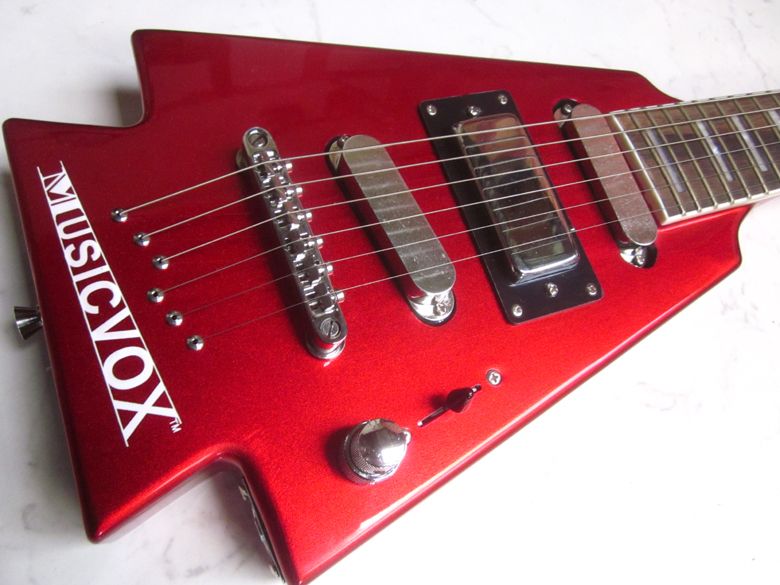
Whilst the Space Ranger and Space Cadets will appeal to psychedelic rockers, retro-themed bands, possibly a few krautrockers, rock'n'rollers and rockabillies, the Space-inator is probably the one Musicvox guitar that might appeal to those from the shredding fraternity as it excels at fast lead playing, playing right up at the top of the 24-fret neck, and thanks to that mini-humbucker it has the necessary tones required.
I can also see a use for it in the studio, as not only is it a professional quality instrument with a wide tonal palette, but also the compact body size make it perfect for those times when you have a guitar strapped on at the ready whilst behind a recording console or computer. You could also use it as a travel guitar, although its full scale length and the presence of a headstock mean that it's a lot longer than some.
The Space-inator is available directly from the
Musicvox website, but also keep following
Musicvox on Facebook where special offers are occasionally announced.
More photos follow:
Note: photos are by G L Wilson, but please feel free to copy and reproduce - although a credit to
Guitarz would be appreciated - thanks!
G L Wilson
© 2012, Guitarz - The Original Guitar Blog - 10 years and counting!




















